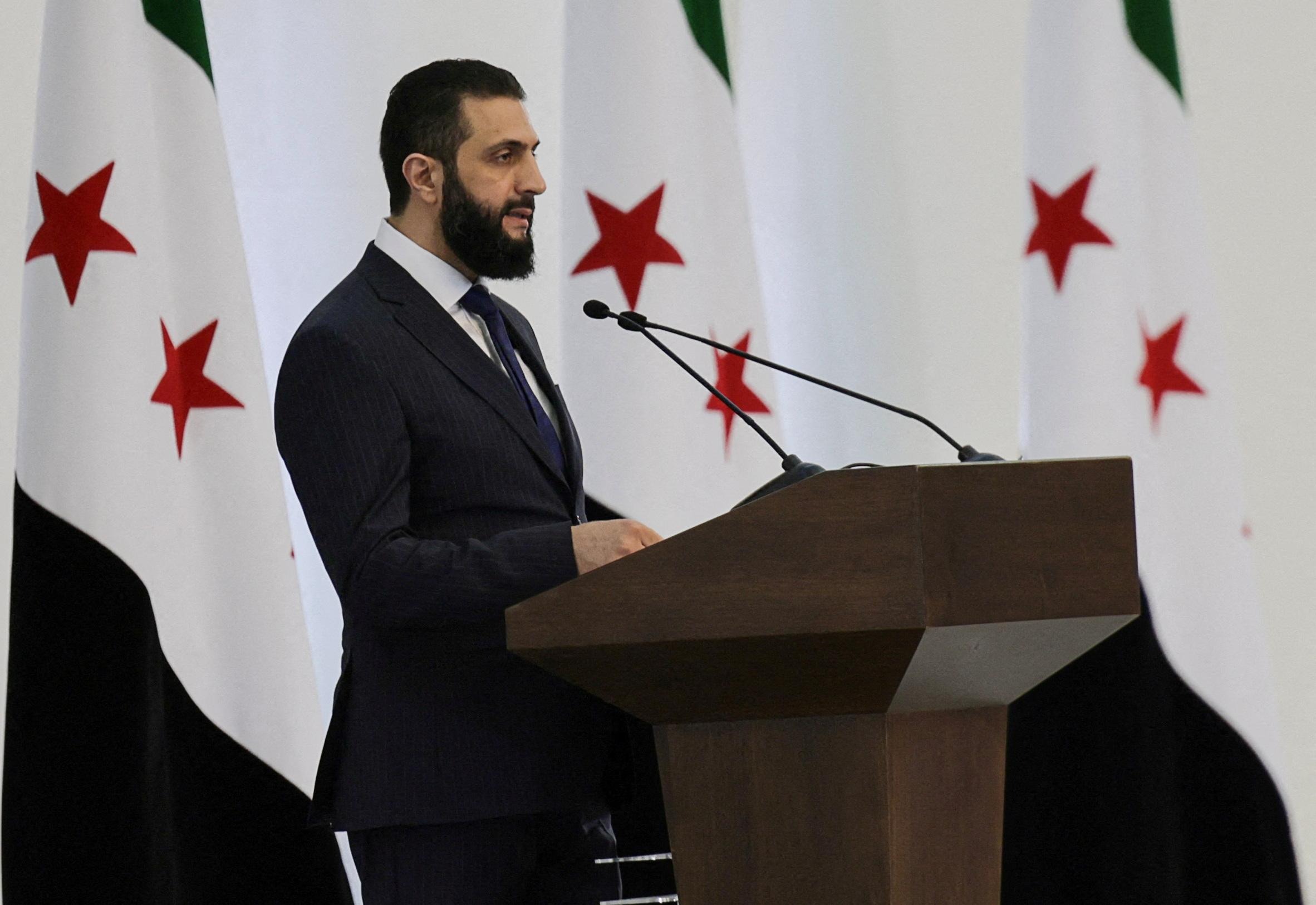Syria’s leader Ahmed al-Sharaa has reportedly expressed openness to normalizing relations with Israel under certain circumstances, ending decades of acrimony between the two neighboring states. Sharaa reportedly discussed the matter with Rep. Cory Mills (R – FL) during his visit to Syria.
The exact terms of this offer weren’t made public, though Rep. Mills said that Sharaa also gave him a note to deliver to President Trump. Syria is keen to get international sanctions eased, and that is likely to be a top condition for such a move.
Syria’s ruling Hayat Tahrir al-Sham (HTS) has actually raised the prospect of normalizing relations with Israel before, indeed even before they successfully took over the country in December. HTS made clear that they didn’t consider Israel an enemy and would allow them to open an embassy in Damascus, as well as in Beirut (though they have not conquered Lebanon so that’s not up to them).

HTS leader Ahmed al-Sharaa | Image from Reuters
Israel invaded Syria more or less immediately after HTS came to power, however, and has been expanding into growing amounts of Syria’s southwest, in addition to constantly launching strikes against targets across Syria. Presumably normalization would also be conditioned on an end to Israeli attacks and occupation of Syrian soil.
That may mean it’s a non-starter from Israel’s perspective, as Israeli officials have indicated that they view a permanent control of that part of Syria as a “vital” part of their military strategy for the region.
Sharaa making such an overture by way of the US is an interesting twist on the matter, as the US has previously been pushing Israeli interests on Syria as a condition for even considering extending sanctions waivers, for instance demanding Syria ban all Palestinian groups in the country.
Syria hasn’t done that, but they did just recently arrest a couple of top Palestinian Islamic Jihad (PIJ) members in what is being call a “good faith” offer to the US, though at present there’s still no confirmation the PIJ people are actually being charged with anything.
The US relationship with Israel on Syria is complicated by a number of matters. The US reportedly plans to reduce their military presence inside Syria, aiming to pressure the Kurdish SDF to speed up integration with the Syrian government. Israel has been outspoken in opposing the US cuts.
Israel, on the other hand, wants the US to condition the cuts on demands for concessions by Turkey, which borders Syria in the north, to limit Turkish influence in the country. The US seems more or less willing to see Turkey, who is also an ally, claim a sphere of influence inside Syria, but Israel sees that as an eventual collision course between them and Turkey over the region.
It’s not clear how many concessions the US could get out of Turkey even if they are inclined to do so. Turkey has recently conditionally halted attacks on the Kurdish-controlled Tishreen Dam, but stopped short of ending their offensive against the Kurds entirely. The US is mediating talks between Turkey and the Kurdish AANES, and while there have been deconfliction talks between Turkey and Israel, so far all the indications out of Israel are that they still consider any Turkish presence in Syria a direct threat to their own interests.
That the HTS is open to normalization with Israel at all is somewhat surprising given their history. Ahmed al-Sharaa was previously known as Abu Mohammed Jolani, and before the HTS his group was known as Jabhat al-Nusra, which was the al-Qaeda affiliate for Syria. Sharaa has tried to distance HTS from its al-Qaeda past, but it remains a strongly Islamist movement and its ideology doesn’t appear to have changed that much. This has led to Israel deciding the HTS is necessarily an enemy, and the US has been very cautious in dealing with them.
Normalization between Israel and Syria would be a huge achievement, and President Trump would doubtless be keen to take credit for it were it to happen. At the same time, the situation is wildly complicated and it’s not clear what the US would be able to offer, let alone deliver, to Syria in return for this move.


